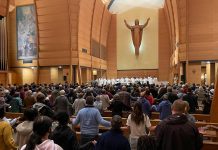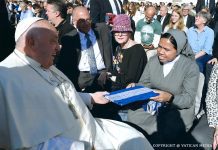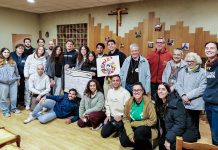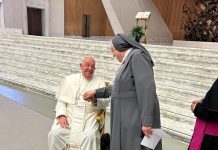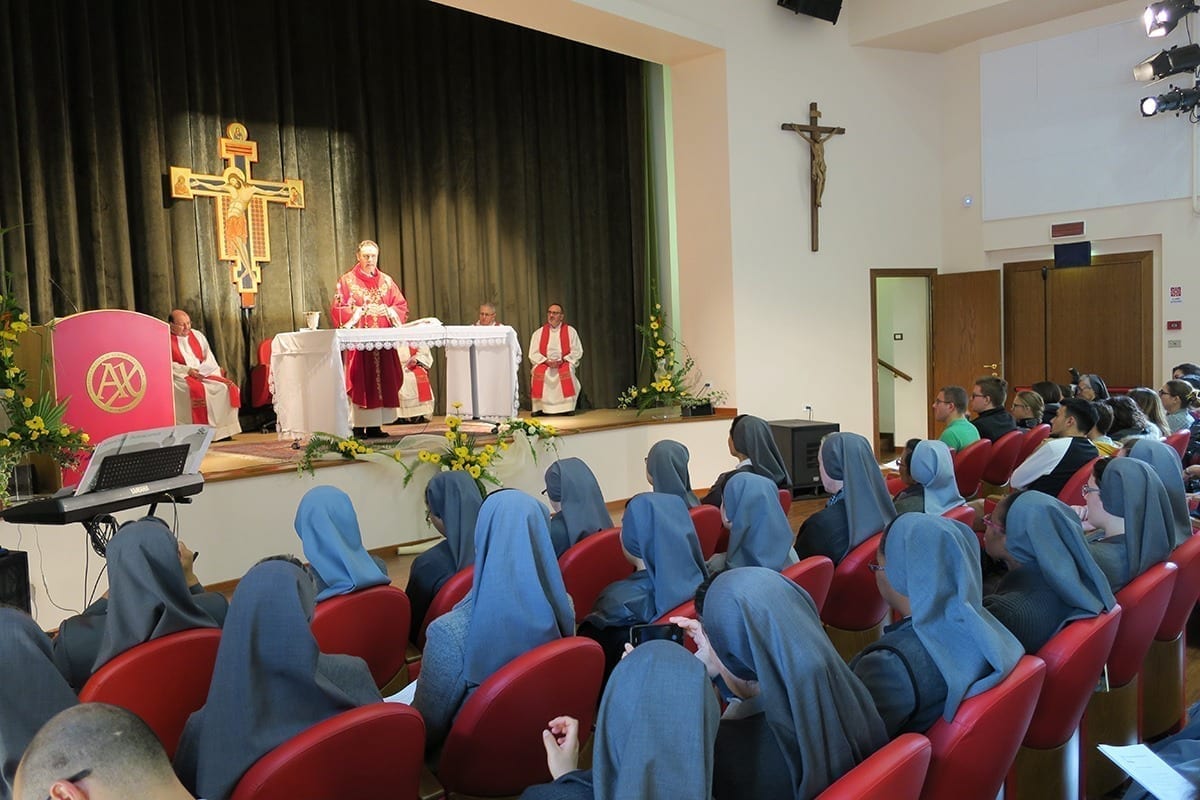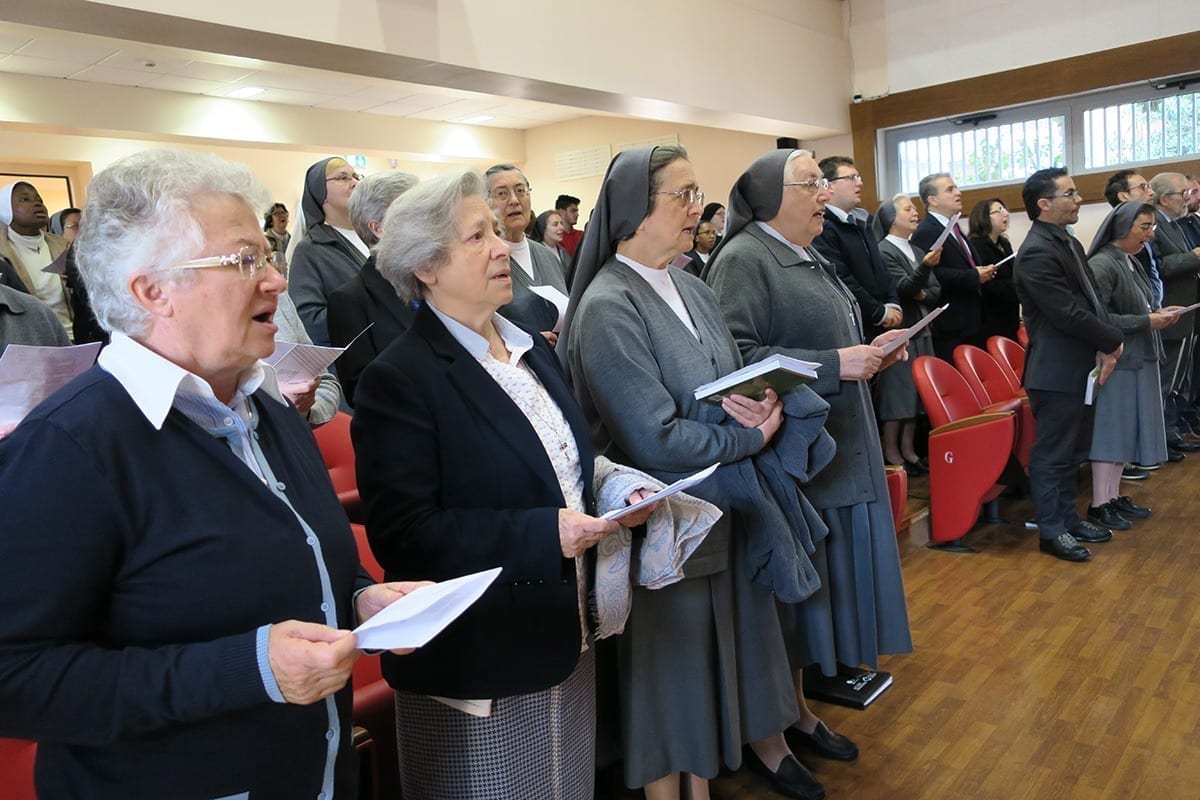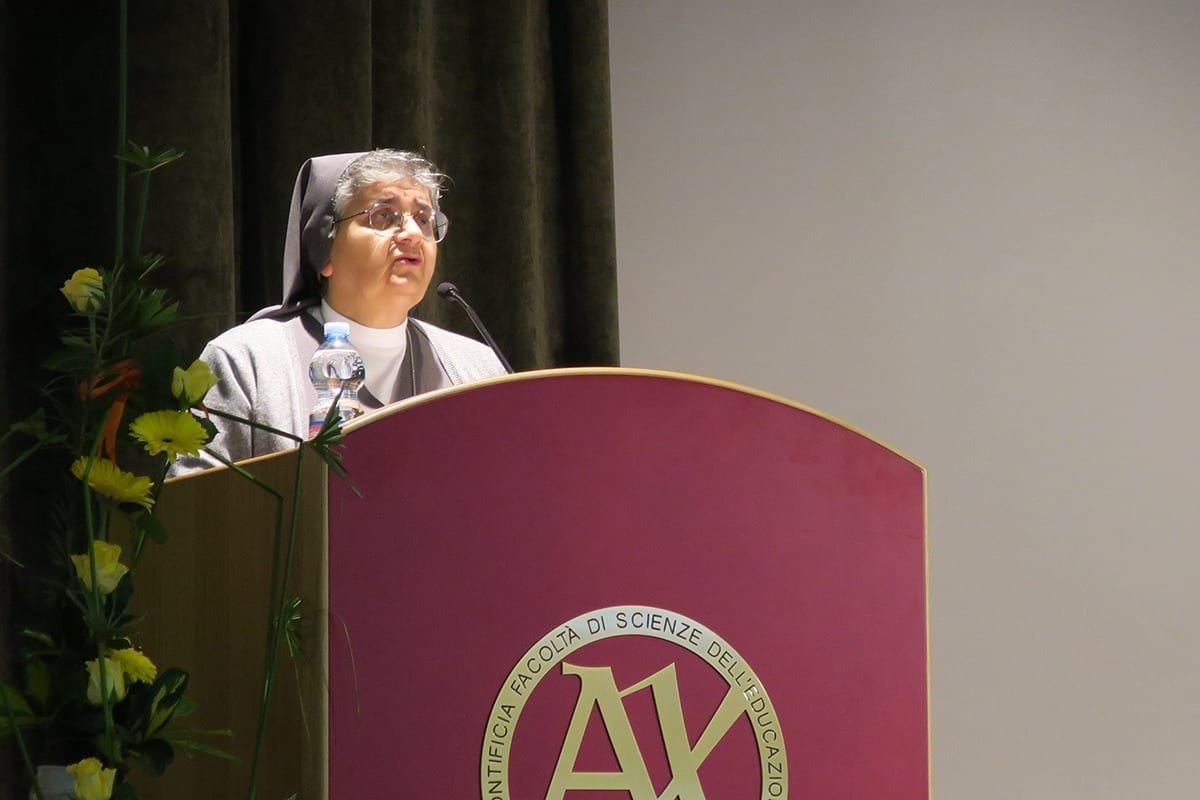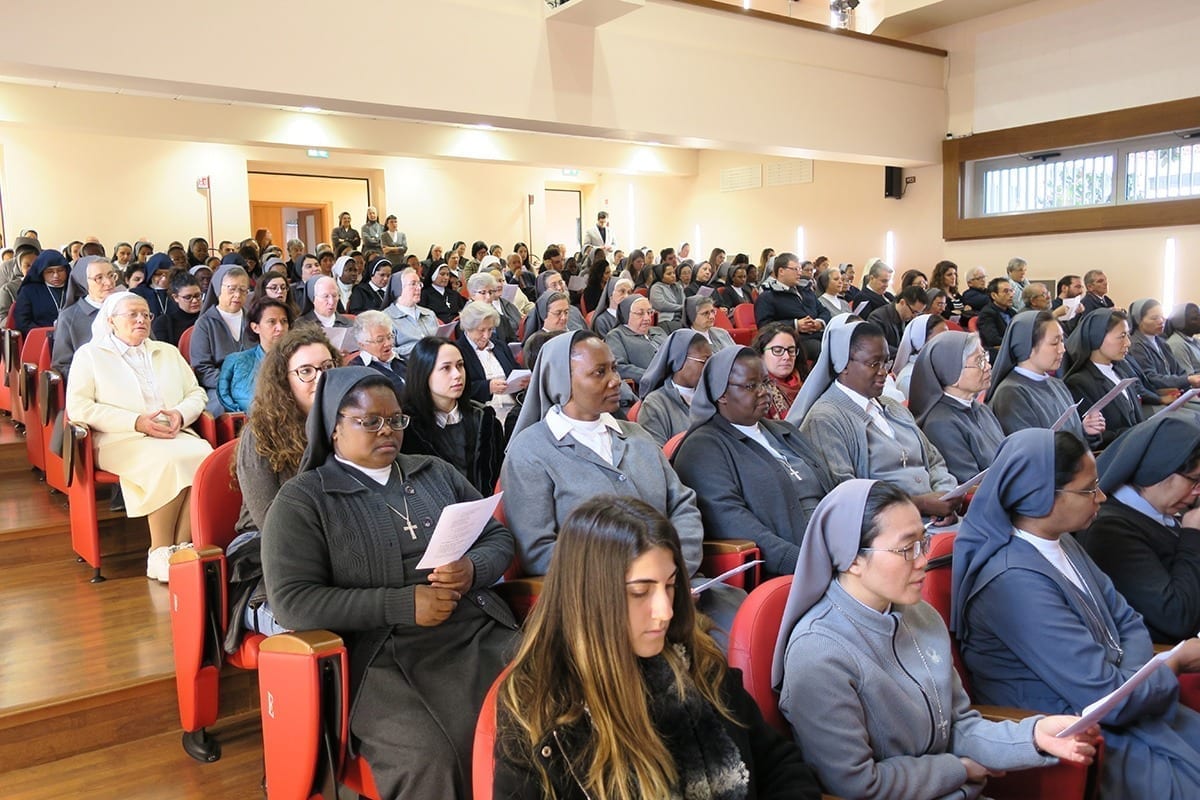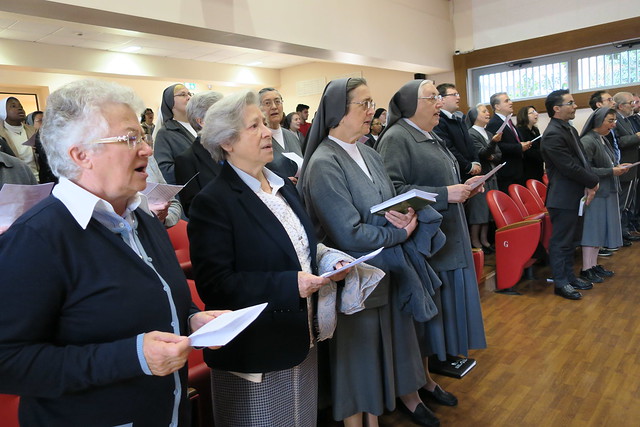Rome (Italy). In the presence of numerous academic and religious authorities, teachers and students, the Rector of the Pontifical Salesian University, Fr Mauro Mantovani, the Directors of the affiliated Institutes, Fr Giuliano Stenico of Modena, and Fr Vincenzo Sorce di Caltanissetta, there was the inauguration on Tuesday 6 November 2018, of the 64th academic year of the Pontifical Faculty of Education Sciences Auxilium.
The solemn act begins with the Eucharistic celebration presided by Fr. Ángel Fernández Artime, Grand Chancellor of the Pontifical Faculty Auxilium and Rector Major of the Salesians, who, in his homily, speaking from his participation in the Synod of Bishops on young people, underlines the experience of synodality “that is, to think, to speak, to invoke, to pray, to walk together”. For Fr. Artime it is a “point of no return” that can launch, not only the Church, but every educational community onto active paths of the accompaniment of young people, “today’s Gospel for today that young people will teach us how to say”.
The greeting of Mother Yvonne Reungoat, Mother General of the Institute of the Daughters of Mary Help of Christians and Vice Grand Chancellor of the Pontifical Faculty Auxilium, refers to the just concluded Synod. She emphasizes that “we are living a fascinating historical moment. We are challenged to study, to prepare ourselves professionally to open new horizons of response and encounter with young people, entering the ‘periphery of culture’, accompanying open paths to difference and to dialogue “.
Central moment in the morning program is the Report on the academic year 2017-2018 held by the Principal, Prof. Pina Del Core.
In introducing her intervention the Principal, among other things, recalls how the ecclesial event of the Synod “has left open many instances and many perspectives for the accompaniment of young people. The final document, in fact, has indicated very clearly how the Church and the educational and training institutions must orient themselves.” The gaze on the youth world has gone beyond the reading of reality and has indicated formation as a privileged way to accompany the new generations. “Are we facing a new way of looking at the world and in particular the youth world? What future, or better, what future scenarios open up for young people in the Church and in society, for them who live daily the experience of a complex but also fluid world because it is constantly moving? The answer, or the answers are not so obvious: Reality and future in education meet when you can deal with change: educate in change and to change, or better, with needs, generations, educational and formative models in continuous evolution, undoubtedly very different from those to which we were accustomed to even in the recent past”. The commitment of the Faculty to deal with change constantly is the note that can summarize the paths and achievements put in place in the past year and that translate into guidelines of commitment for the academic year that is inaugurated today.
The intervention of Prof. Alessandro Rosina, professor of Demography, Director of the Department of Statistical Sciences at the Catholic University of the Sacred Heart in Milan and an expert recently present at the Synod of Bishops on Youth, marks the culmination of the academic act. In his talk entitled “Youth and the future. What challenges for learning and teaching?”, he combines the conscious vision of the scholar and researcher and the impassioned gaze of the educator. “The generational change is the most suitable way to better grasp the opportunities for change, to make it become what generates greater well-being and better ability to create wealth in new times” because with “young people crushed in defense, without responsibility, and unmotivated, with a generation trapped in an unsatisfactory present or in flight, it is important to grasp that it is not enough to count on the support, the presence, the contribution of the family, but rather on their own social value, on recognizing its specificities, both in terms of fragility to contain as that of potential to develop “.
This means “fielding a mutual recognition of values: young people must recognize the value of what they have received; the older generations must recognize and help promote the values brought by the new generations”. To overcome the imbalances, therefore, a “cultural change is urgently needed where all the members of the community accompany and ‘wager’ on the new generations”.
The challenge therefore remains to find the right direction to achieve this change. If at his time Lorenzo de Medici wrote: ‘There is no certainty in tomorrow’, “it is even more important today when the points of reference are scarce, to equip the new generations and educators engaged in education, to manage the present by forming new skills to acquire a solid formation and a positive and enterprising attitude from the start in building their professional path. They must maintain the abilities that may weaken in time and value the enrichment of experience and relationships developed on their journey. They must take the opportunities of mutual contamination and cooperation among people with diverse sensibilities and competencies. They must continually put into discussion the maps for reading reality and the ways of acting in it”. We are therefore convinced that only with the contribution of the new generations is it possible to conquer the current challenges. “They are the bridge to the future because the “new” produces the “new”. And so, in conclusion, Rosina, using an expression of the final document of the Synod of Bishops on young people, gives the educational community a task: “to make young people not only feel welcome, but also helped to discover the value of their greatness in the feedback of the positive of their “being and doing” produces “with and for”.
The final act is the proclamation by the Grand Chancellor of the opening of the academic year. A year that opens with change as a key word not only for the future of young people, but also for the Academic Community that prepares professionals in education and that continually rethinks its formation offering in this perspective.
At the end of such an intense morning, there is one more awareness, the one that Bernanos wrote: “It is the fever of youth that keeps the rest of the world at a normal temperature. When youth cools, the rest of the world shivers.”


